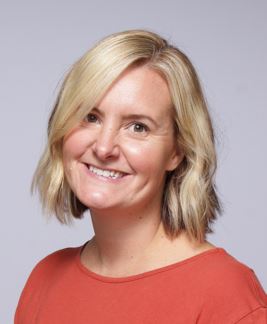 Mrs Gifford
Mrs Gifford
Geography Subject Lead
Intent
At MPA, we want all children to develop a positive attitude towards Geography. We view geography as an important area of learning and want children to see that people of all genders and ages can be geographers. We aim to instil curiosity for the world and the people who live there and develop in all our children the characteristics and attributes of a geographer.
Over time, the children will develop a fluency in complex, geographical enquiry skills such as questioning, explaining, and effectively presenting their findings and conclusions. By the end of their primary schooling, they will have an extensive base of geographical knowledge, skills and vocabulary. All pupils, irrelevant of needs, will have a clear awareness of the world in which they live.
Implementation
Geography is the driver subject for the Spring term in Years 1 to 6. Where possible, Geography is linked to other curriculum areas to develop cross-curricular links such as Design and Technology when learning about agricultural land use and types of farming, making links to seasonality. To ensure full coverage of the National Curriculum, Geography will also be taught discretely in the Autumn and Summer terms.
Teachers use Cornerstones Maestro as a basis for their planning, linked to the long-term and short-term plans set out for the MPA curriculum. By using these pre-planned sequences of learning, this ensures children develop their knowledge, skills and vocabulary sequentially.
As children progress through the school, they revisit the appropriately sequenced geographical knowledge, skills and vocabulary so that they are built on year-by-year and across projects. This ensures children are given opportunities to achieve depth in their learning. Children are also given the opportunity to explore geography in their local area and beyond as well as learning about key geographical figures throughout the curriculum, including Roald Amundsen and James Cook.
The teaching of Geography at MPA includes the development of fieldwork which the children will carry out in the local area. This develops the children’s understanding of geographical enquiry and ways in which this can be undertaken.
Learning is matched to the different needs of learners, enabling all pupils to access the curriculum, with those who may require it, such as SEND or pupil premium groups, are able to access additional or adapted resources.
Evidence of learning is recorded in a way in which is appropriate to the task the child has completed. This may include photographs, written responses, pictures, tables or graphs. In Years 1-6, children use a geography book to record their learning. Children who are in EYFS have their work recorded on paper or on Tapestry.
Geographical vocabulary is referred to in lessons, as linked to the short-term planning to ensure progression and sequencing. Teachers will model how to correctly pronounce words and use them in the correct context. Vocabulary understanding is checked at the end of the current lesson but again at the beginning of the next, and revisited in future lessons, units and year groups to embed this into the children’s long-term memory.
Impact
The Geography subject lead regularly checks that teaching approaches match the intended curriculum goals for pupils, as well as following the progression of knowledge and skills which are laid out within the MPA curriculum. The sequencing of lessons supports and promotes progress for all children and teachers check what pupils know in their geography lessons, through teaching, discussion and feedback.
Teachers assess the children on Cornerstones against the knowledge and skills which have been covered in each lesson. This is completed after each lesson has been taught. Evidence will be collated from teacher assessment, recorded work in Geography books and pupil voice to inform these assessment. This will track the children’s progress against age-related expectations for Geography.
In the term where Geography is a focus subject (to support workload for subject leaders), the Geography subject leader will use a range of methods to evaluate the strengths and development areas, including pupil voice, learning walks and book looks. They will also identify any CPD needs within Geography, which may include team teaching, modelled lessons for teachers or whole teaching staff CPD within a staff meeting. The aim of this is to give staff the skills they need to be confident to teach and promote the subject.
Wider and Extra Curricular Opportunities
- Educational visits with a geographical focus. For example, a visit to Kiln Farm Nursery when studying ‘Sow, Grow and Farm’, a visit to Dunwich to look at the features of a coastline when studying ‘Coastlines’ and a journey on the Orwell Lady when studying ‘Misty Mountains, Winding Rivers’.
- Eco Committee – children can apply to be a part of the Eco Committee in the school each year. This group of children lead on sustainability and conservation within the school to support the environment.
- Gardening Club – the MPA garden is maintained by gardening club, who are a wide-range of children within the school. Many different vegetables are grown and these are shared with the school community at the end of a school day or are used within lunches in school.
- Schools Show Garden Competition at the Suffolk Show 2024 – a group of children have applied to take part and create an Olympic Themed Garden for the competition which will be on display at the Suffolk Show
Sustainability and Climate Change
The school is committed to teaching the children in the school about sustainability and the impact of climate change. This is threaded throughout different subjects within our curriculum. The coverage of this can be found below.
Sustainability and Climate Change coverage
Geography Progression Documents